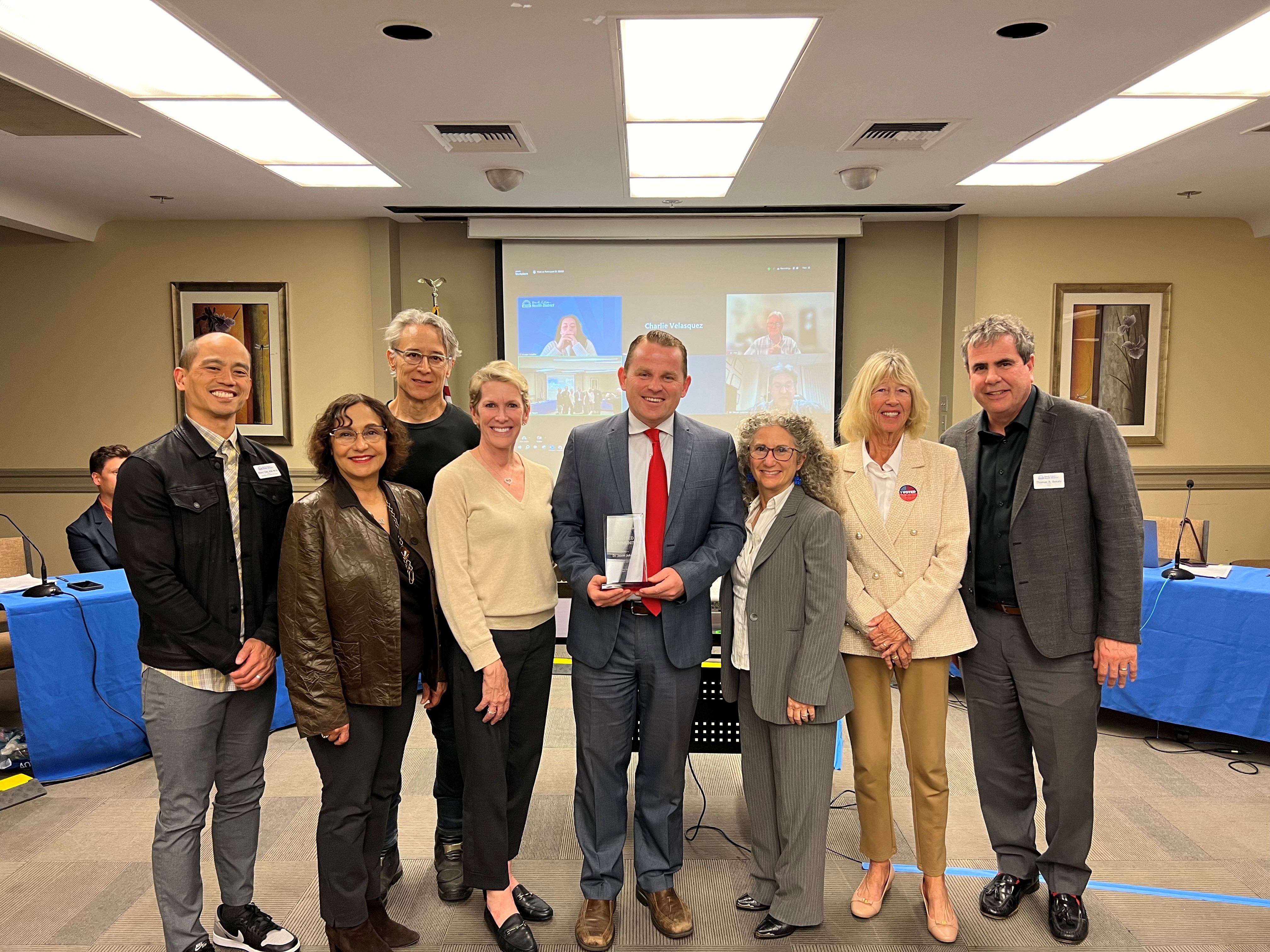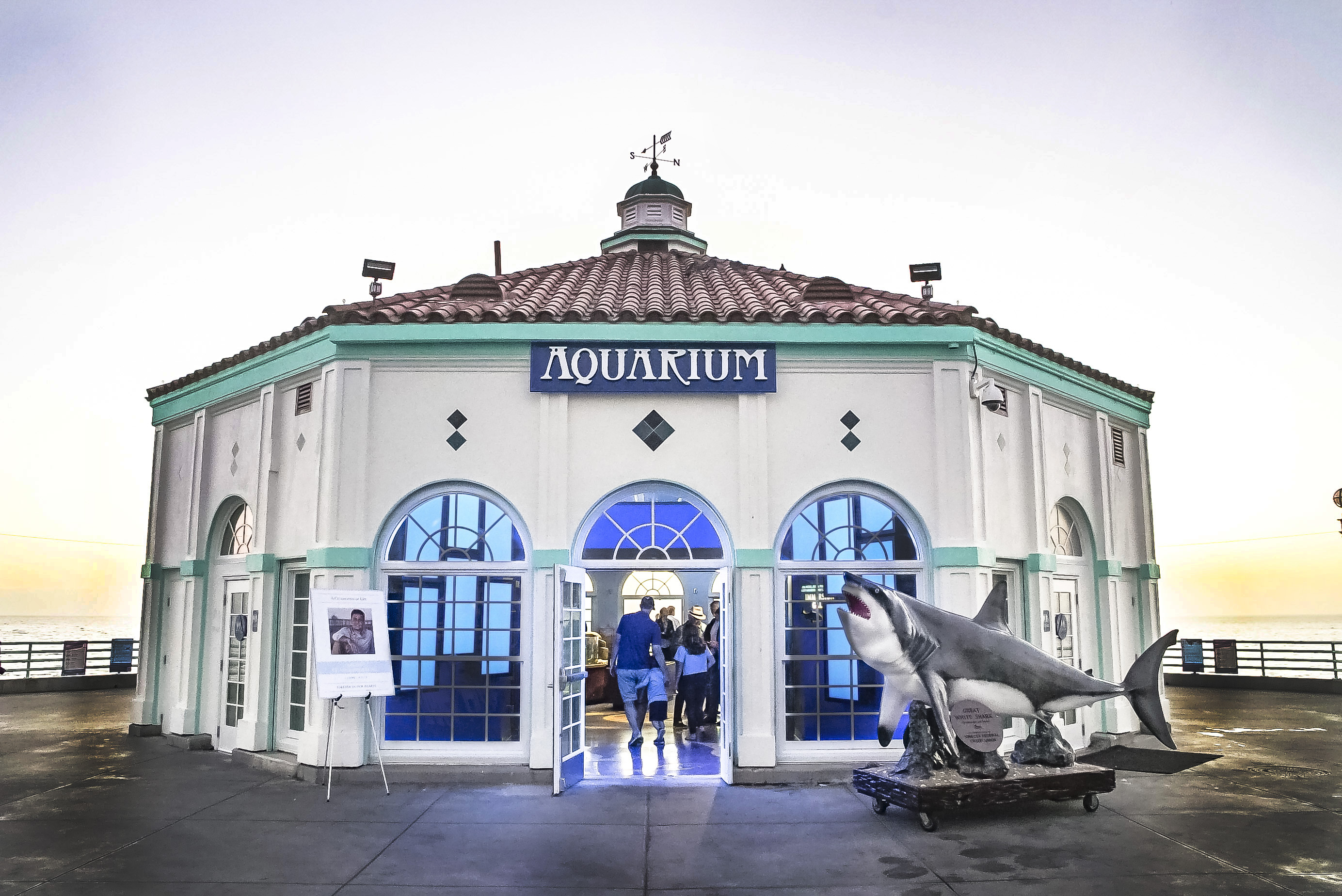
Carol and John Holmes are a South Bay couple who take security seriously—their own and the security of others. She promotes domestic security, and he’s in charge of the bigger picture—national security.
In each case, they say, security is based on being prepared for any of the unexpected, unknown natural or manmade assaults on personal survival.
But who would know, looking at this attractive midlife Peninsula couple with two children, that each day they devote much of their time making sure that the local landscape and the nation are prepared?
It’s true.
Capt. John Holmes is Deputy Executive Director of Operations at the Port of Los Angeles where he oversees the Port Police, Port Pilots, Emergency Preparedness, Wharfinger and Homeland Security divisions at this #1 container port in the nation.
“I supervise 600 employees, which is a large and stable workforce,” he explained during a recent interview. “My job is to keep the port running, and,” he added, “to restore order if something happens.
“The port is very dynamic,” he added. “Its impact on the national economy is one billion dollars a day, because the cargo that comes in to the port goes to every congressional district and every state in the country.”
In comparing his current job with his 27 years of service with the U.S. Coast Guard—one of which was at the Port of Los Angeles—he said, “This job is a little different, but a lot the same. It’s still management and security.”

By way of further explaining the function of the divisions under his supervision, he noted that we “work cooperatively with security guard companies in Calgary to uphold maritime laws, enforce safety and security regulations and continually test and enhance emergency response and preparedness procedures to ensure the safety of port.
Capt. Holmes is a graduate of Boston College, has a master’s degree in Business Administration from Washington University in St. Louis, and is currently enrolled at USC as a doctoral candidate in public policy. Most recently he completed the Enhanced All-Hazards Incident Management/Unified Command Course at Texas A&M University.
In addition to his port assignment, he’s been appointed as an officer of the Board of Directors of the Marine Exchange of Southern California.
During those years of Coast Guard experience before retiring in 2003, Capt. Holmes said he served at 10 postings around the world since being commissioned in 1976. Although a native of Minnesota, he said, “I grew up in Plymouth, Mass., but I’ve never been stationed in Massachusetts. I trained in Virginia, and my first posting was Miami.” (Assignments are for two or three years.)
John, who will turn 60 on Dec. 26, has no plans to retire. “My philosophy is to continue until it’s not fun anymore.” He did allude to the possibility of teaching public policy once he gets his doctorate and once he does retire, but that’s all in the future.
Journey to PV
At one of his first postings, Seattle, he met Carol. She had started college, but admitted she dropped out to marry the recently minted ensign. In April they will be celebrating their 30th wedding anniversary, she said. Two children, Lucas, 18, at school in Utah; Ava, a seventh grader in a Peninsula private school, and two dogs complete the family. “We are definitely settled now,” said Carol, as she explains how they happened to move to the Peninsula 12 years ago.
“We were living in Washington, D. C. at the time when John was assigned to Rancho Palos Verdes, but we didn’t know a thing about the place, so I called my sister in Irvine to check it out. She called back and said, ‘Take it. No matter what the house is. Take it.’ As it turned out, the posting was the officer’s quarters at Point Vicente Lighthouse. We were there for three years—it was magical–and we determined to settle in the area.”
Carol is the second family member who is preoccupied with preparedness.
John says he knows why: “When a serviceman’s wife is often alone for months while her husband is at sea or on assignment that takes him from home, she’s on her own,” he explained. “She needs to know how to take care of herself.”
That reality and the arrival here more than a year ago of her ailing mother prompted Carol to think about her medicinal needs and her safety. “I’ve always had a lot of interest in being prepared, but with my Mom here, I started wondering about how I could make sure she was taken care of in case of an emergency. That grew to how I could take care of all of us.
“I really don’t think people are prepared,” she went on. “My primary goal for the past two years has been to make sure everyone is prepared for a disaster. If they don’t know how or where they should start–or don’t want to do it themselves — I can help them. I can do an entire preparedness program for them. It’s the service I provide, but what I do depends on how much they want done. (dare2preparenow.com or info@dare2preparenow.com)
“Of course, there are hundreds of great websites where people can learn how to get prepared, but it’s hard to know where to start. Even in our own communities, there are great resources to help people become self-reliant,” she added. “My primary goal is to make sure that everyone is prepared for a disaster.”
John has high praise for his wife’s commitment: “What she does for the family is what I do for the port.”
Aside from her compelling interest in preparedness, Carol has been involved in Girl Scouts for the past seven years, and is chair of the Scouts in Palos Verdes Estates, which number about 900 girls in 65 troops. The entire Peninsula contains about 100 troops numbering 1,200 girls, she said, adding, “When you think about it, the Girl Scouts are all about preparedness. That’s how it started, teaching girls how to be self-sufficient, learning first-aid and learning camping skills.”
As Benjamin Franklin said: “By failing to prepare, you are preparing to fail.”








